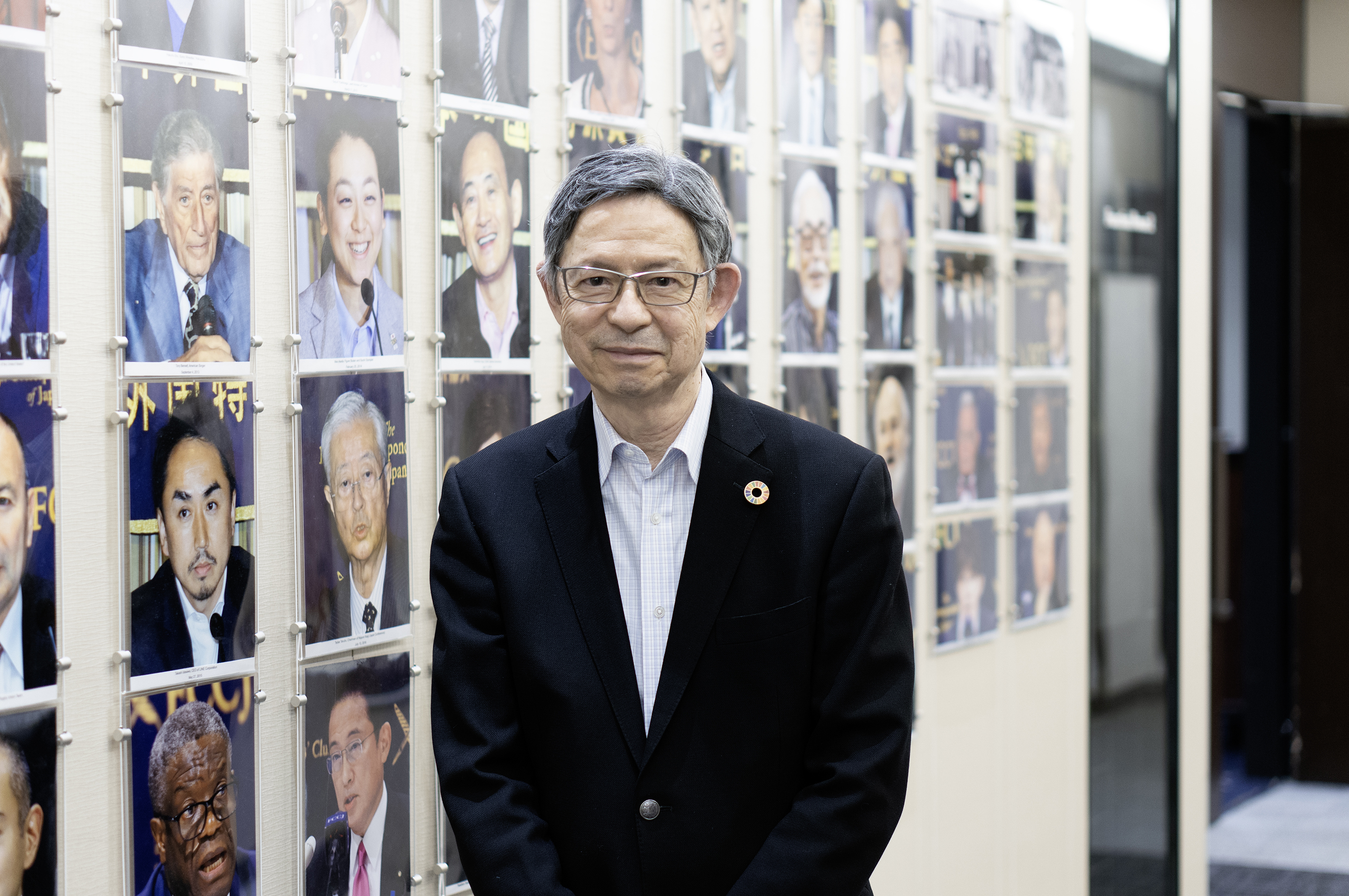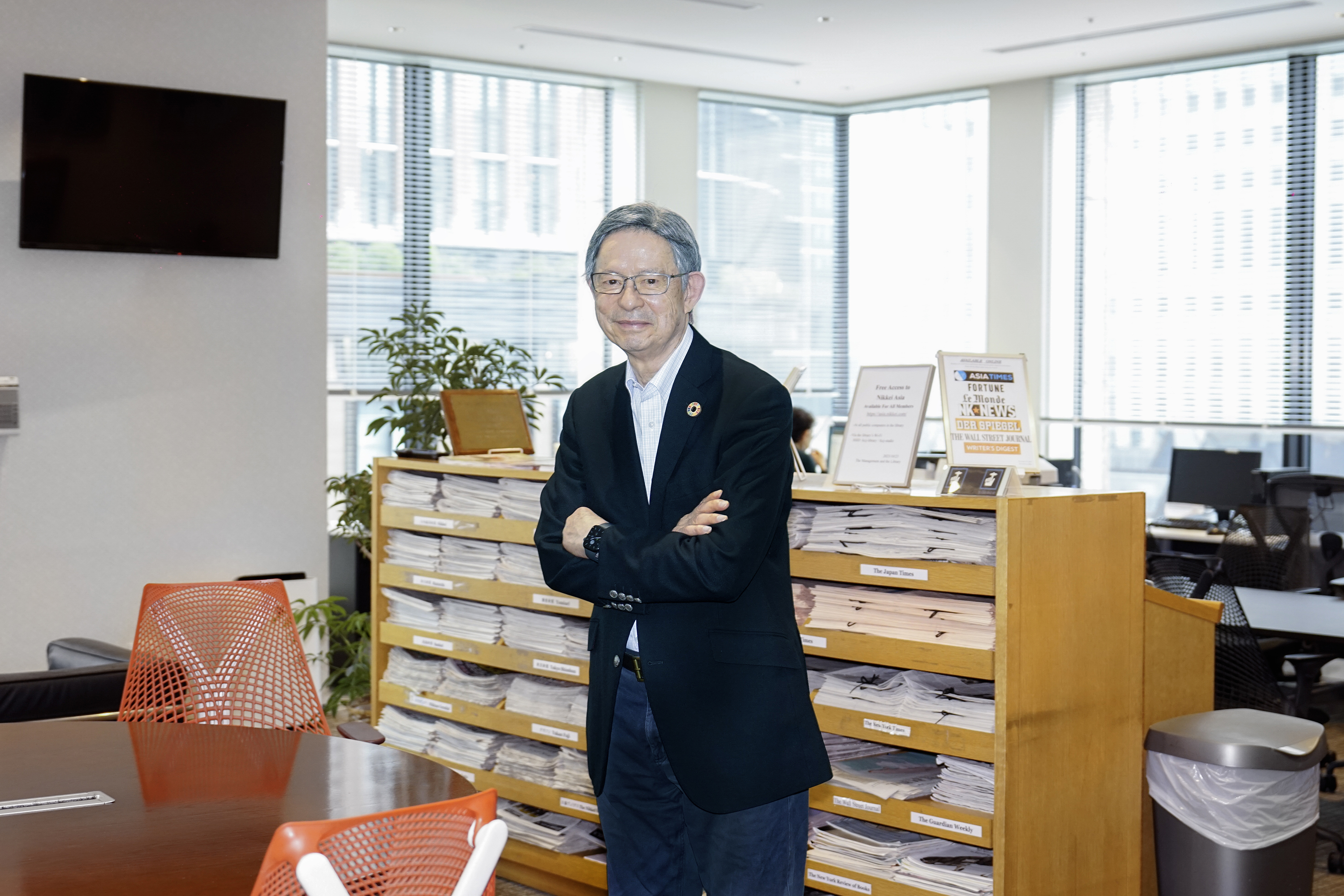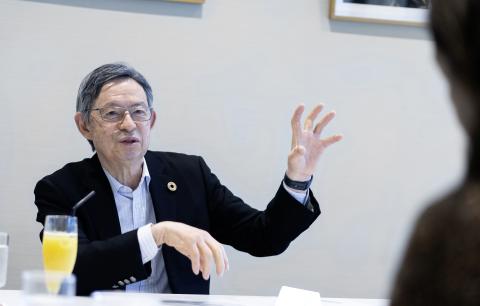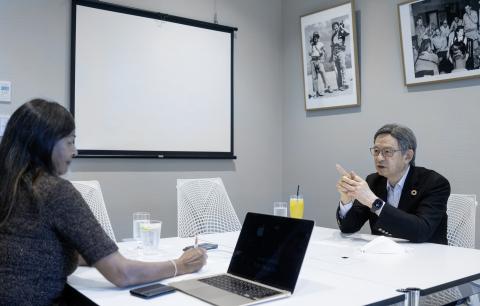Issue:
May 2025 | Ask an Associate
Takejiro Sueyoshi has made a success of nonconformism; now his sights are on Japan’s political leaders

A passionate advocate of environmental protection, Takejiro Sueyoshi, a longtime member of FCCJ, boasts a profile of hard work and action.
“There is no point in simply saying the right thing and not doing anything about it,” the 80-year-old said in a recent interview.
The former Mitsubishi banker is currently a key player in advancing clean energy in Japanese business and government. The foundations were laid more than two decades ago, when Sueyoshi, who had retired from an asset management company, moved into sustainable finance – turning social and environmental challenges into opportunities in capital markets.
“Imagine that,” he said with a sardonic laugh, referring to his mission to counter a corporate mentality focused on profits. As expected, the business world reacted with scorn. “When I held a press conference on sustainable finance, no one attended, only a couple of journalists,” he said, pointing to one of the many roadblocks he faced.
But that did not stop him. In the 2000s, he joined the United Nations Environment Program [UNEP] Finance Initiative, which promoted the responsible investing. “Joining an international campaign was critical to make inroads in Japan, which is always a late starter,” he said. At the time, Japan had entered its post-bubble era and businesses were struggling. By contrast, Sueyoshi said, his international colleagues at UNEP were targeting new opportunities. “Investing to eradicate issues such as global warming and economic inequality were seen as the way forward.”
As sustainability began to resonate globally, Japan, too, took the issue more seriously. “Suddenly, I was not viewed as a strange person. Rather, businesses approached me to meet the changing market,” Sueyoshi said. Today, Japan`s top banks and financial institutions oversee individual sustainable development strategies - potent examples of the changes he had envisioned.
“The business sector leads reforms in Japan because they face a global market,” he said. The veteran changemaker views Japan’s political scene as mired in the past and unable to innovate, however. “Political leadership cannot reverse Japan's deep-rooted national sentiment, which propagates the country as unique compared to the rest of the world. This is our tragedy.”
Sueyoshi is also co-head of the Renewable Energy Institute, a think-tank initially funded by billionaire Masayoshi Son after the March 2011 triple disaster. The meltdown at Fukushima Daiichi nuclear power plant had exposed the vulnerability of Japan's energy policy. “The objective of the center is to advance renewables through science. As this sector grows, Japan can steer away from coal, oil and nuclear power,” Sueyoshi said.
He shrugged off the Trump administration’s rejection of climate change. “I remain optimistic,” he said, insisting that the discussion over the climate crisis was over. “Rather, everybody has begun to work together to limit the danger posed from global warming. American indifference is not the point anymore.”
As chair of the World Wildlife Fund in Japan, Sueyoshi is due to fly to Dubai this month to speak at an international conference on protecting endangered species. “I love my work.”

He is painfully aware of the challenges his home country faces. “Japan’s power industries enjoy uncompetitive status as providers of national energy. As recipients of public funding, they are powerful blockers of change.” He is a critic of the government’s 2040 energy plan, which will keep thermal power at 40% of the overall mix. A critical approach to change is raising public awareness by sharing climate risk literacy, he said.
Sueyoshi predicts Japan will become a mid-sized economy, given its declining population and the growing economic might of other countries. He hopes the next generation of Japanese leaders will have more of an international mindset and steer the country toward greater openness. “We must act as a partner in the global world. The unique-state status is over.”
Suvendrini Kakuchi is Tokyo correspondent for University World News in the UK.



